Ex-spy takes on CSIS review body: SIDEWINDER REPORT.....TRIADS
Ex-spy takes on CSIS review body Says security agency squelched report on threat posed by Chinese triads
ANDREW MITROVICA
Tuesday, October 24, 2000
======================================================
Report
6Nov00
(12) The Sidewinder scandal
A leaked report makes explosive allegations about links between the Liberals and Chinese agents
by Kevin Michael Grace
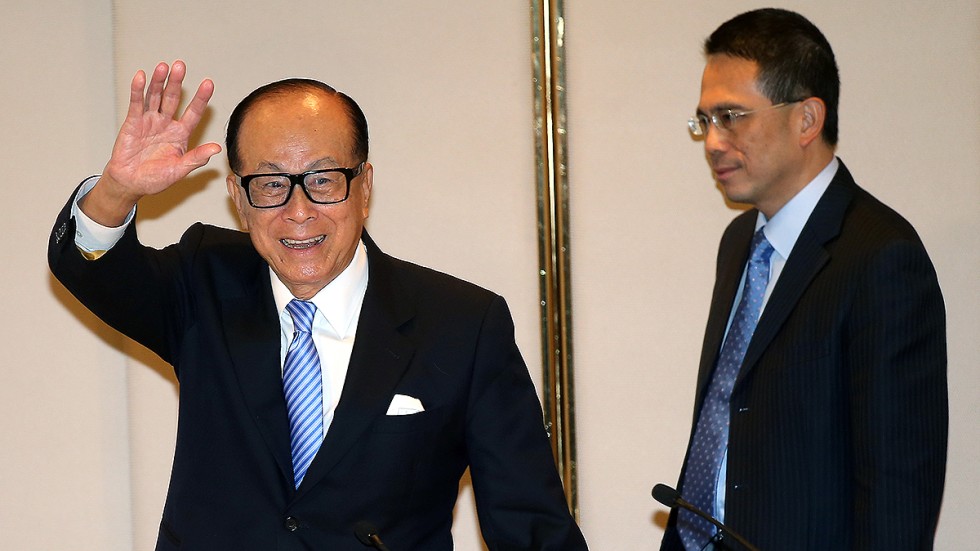
=======================================================
(13) Chinese triads sought foothold in Vancouver port operations
Fabian Dawson, Staff Reporter The Province
Title: Further details revealed about Hong Kong `scam'
Source: Edmonton Journal, September 10, 1999, Final Edition, p.A10
There is evidence someone working inside Canada's consulate
in Hong Kong was selling visas to an immigration consultant through
a back channel, an RCMP officer and former diplomat contend.
The allegations were levelled Wednesday by suspended RCMP corporal
Robert Read and former diplomat Brian McAdam, the immigration
control officer at Canada's consulate in Hong Kong between 1991 and
1993.
Read told reporters of ``an under-the-table arrangement whereby
there was an illicit application system operating alongside the
legitimate process,'' the Toronto Star said Thursday in a report
from Ottawa.
Read said the alleged scam involved a Hong Kong immigration
consultant, and claimed there was evidence in RCMP files the man was
working with a Canadian consulate staffer who had top-level access
to the computer system used to process applications for residence in
Canada.
Read, who identified both the consultant and the Canadian staffer,
contends there was evidence the staffer was taking ``phantom
applications'' from the consultant for a fee and processing visas
without ever entering the applications in the computer.
Read and McAdam have made waves in recent weeks by going public
with allegations that a corrupt immigration scam at Canada's mission
in Hong Kong was covered up by senior officials.
They have alleged that between 1986 and 1992 the computer system at
the Hong Kong consulate was infiltrated and that files were altered
to allow criminals to get into Canada.
A senior Canadian diplomat says new preventive measures are in
place to foil any possible security breaches in processing visas.
Bruce Gillies, of the Hong Kong-China division of the Department of
Foreign Affairs, said there have been three staff audits since the
handover to China and that new controls have been placed on computer
access.
Copyright Edmonton Journal 1999 All Rights Reserved.
Title: The story so far
Byline: Fabian Dawson; Staff Reporter
Source: The Province (Vancouver), August 29, 1999, Final Edition, p.A3
Last Thursday, in an exclusive investigative report, The
Province shed light on a seven-year probe by the RCMP into the
alleged infiltration of the immigration computer at the Canadian
diplomatic mission in Hong Kong.
The alleged infiltration of the Computer Assisted Immigration
Processing System is said to be the work of some locally engaged
staff with links to triads -- the Chinese Mafia. It was initially
brought to light by the then immigration control officer, Brian
McAdam, who provided a series of RCMP officers with loads of leads.
In 1992, two investigators, one from the department of external
affairs and the other from the RCMP, flew to Hong Kong to look into
the case.
Despite being told of files being deleted, finding fake immigration
stamps and discovering that locally engaged staff had given
themselves unauthorised high-level security clearance to issue
visas, neither pursued the matter, and the case was closed in 1992.
McAdam continued with his reports alleging that 788 files with
sensitive background information on criminals and businessmen had
been removed from the computer and that nearly 2,000 blank visa
forms were missing.
RCMP reactivated the investigation in 1995 and worked with the
Canadian spy agency, which launched Operation Sidewinder to look at
the extent of Chinese espionage in this country. That operation was
abruptly halted.
After a series of RCMP officers were assigned the case and abruptly
transferred, Cpl. Robert Read of the RCMP immigration and passport
section in Ottawa was assigned the file in September 1996.
Finding gaping holes in the earlier investigations and leads not
being followed up, he recommended that a thorough investigation be
done. He was taken off the case.
Suspecting internal collusion to keep the matter hidden, Read filed
an obstruction-of-justice complaint in January 1998, alleging that
his superiors were trying to cover up the issue.
After the first report in The Province on Thursday, the RCMP
confirmed that they are investigating the penetration of the
computer and other improprieties involving staff at the diplomatic
mission.
The next day, The Province tracked down a key suspect in the
infiltration of the computer to North Vancouver. This was the woman
whom the first RCMP investigator in 1992 said he could not find.
Documents allege that investigators found fake Canadian immigration
stamps in her desk. She now works as an immigration consultant.
On Friday, the auditor-general's office in Ottawa said it is also
looking at the case to determine if Canadian tax dollars were being
abused at the diplomatic mission in Hong Kong.
The solicitor-general's office has also received a
five-centimetre-thick dossier on certain clandestine goings-on
involving high-ranking officials at the Canadian mission in Hong
Kong and alleged links between certain politicians and triad
leaders.
The story has been making headlines around the world, especially in
Hong Kong, where the major dailies carried wire versions of the
Province expose.
Copyright The Province (Vancouver) 1999 All Rights Reserved.
Title: Were our officials bribed in Hong Kong?: Mounties are investigating a night at the races and little red envelopes stuffed with dollars
Byline: Fabian Dawson; Staff Reporter
Source: The Province (Vancouver), August 29, 1999, Final Edition, p.A2
It was called a night at the races.
That's when ``Granny Pong'' stood at the entrance of the posh
private room at the Happy Valley race track, dishing out little red
envelopes to employees of the Canadian diplomatic mission in Hong
Kong.
In each packet was $1,000 HK (about $200 Cdn at today's rates),
so-called lucky money for diplomats and other staff at the Canadian
commission to either bet on the horses or take home.
Now some of those who took this money from wealthy Hong Kong
socialites may not be so lucky.
The RCMP confirmed Friday that it is looking at this type of
incident and other alleged improprieties involving staff at the
Canadian commission (now consulate general) in Hong Kong during the
height of the immigration wave from the then British colony.
``We cannot get into the specifics of the investigation, but we are
looking at other improprieties in addition to the CAIPS incident,''
said RCMP Cpl. Marc Richer from Ottawa.
The ``CAIPS incident'' -- the acronym stands for Computer-Assisted
Immigration Processing System -- was detailed in an exclusive
Province report last Thursday.
It involved claims that locally engaged staff were paid to delete
from the CAIPS immigration computer sensitive background information
on criminals and businessmen seeking to migrate to Canada and that
some 2,000 blank visa forms had disappeared from the mission.
Documents obtained by The Province show that police are also
investigating at least one incident involving the little red
envelopes that occurred in 1991.
In addition, suspicions have also been raised against certain staff
who received lavish going-away gifts, including one officer who
received a Rolex watch.
Another officer is said to have been given expensive gold coins as
a gift to his parents, whom he was going to visit.
Suspicion has also been raised about an immigration officer who was
on assignment in Hong Kong but went home with $300,000 Cdn that he
supposedly won at the races.
Brian McAdam, former immigration control officer at the mission,
who alerted Ottawa to the CAIPS infiltration in 1992, said RCMP have
questioned him about the ``little red packet'' incident.
``I expressed trepidation -- about the invitation to the races --
to my immediate boss, but was told the people inviting us were not
asking for visas to go to Canada,'' he recalled last week in Ottawa.
``When my wife and I arrived at the VIP room at the race track,
Granny Pong, the matriarch of this family, thrust little red
envelopes into our hands, as she did for every other couple,'' he
said.
``This greatly disturbed me because I knew this was an old
technique to bribe people,'' said McAdam, an internationally
renowned expert on triads (the Chinese Mafia), whose reports are
used by various law enforcement agencies.
``When we returned home and opened the envelopes, there was $1,000
HK in each of them,'' he said.
McAdam said he took the issue up with his superiors the next day
and was assured that such a thing would not happen again.
``But I was told I could not return the money because it would be
taken as a great offence,'' he said.
McAdam sent the cash to the Save the Children Fund, saying it was
courtesy of Granny Pong, and gave his boss a copy of the letter
accompanying the donation.
One of the series of RCMP investigators looking into the
allegations of improprieties at the diplomatic mission made
inquiries into the incident outlined by McAdam.
Documents show that he was told by a senior official at the
commission that the money was collected back from all those who
received it and returned to Granny Pong.
Cpl. Robert Read of the RCMP's immigration and passport section,
who took over the Hong Kong file in September 1996, confirmed that
he was investigating the red-packet incident when he was removed
from the case.
Read, who found gaping holes in earlier investigations and became
suspicious about the lack of follow-up to leads given to some
investigators, suspects that the RCMP is perpetuating a coverup of
some of the incidents that went on at the diplomatic mission.
He has filed an obstruction-of-justice complaint against some of
his senior officers.
Read refused to divulge what he found but has forwarded his files
to the federal auditor-general's department.
Cash in red packets, according to sources familiar with the custom,
is an old Chinese tradition practised during the Lunar New Year and
other auspicious occasions.
However, it is not unknown for criminals to have adapted the custom
to their own ends.
The unanswered question, according to McAdam's report on this
incident filed to an assistant deputy minister in the department of
external affairs, is: ``Why would multimillionaires constantly
invite all newcomers from the Canadian mission's immigration
section, as well as locally engaged staff, to the horse races and
give them thousands of dollars?''
Copyright The Province (Vancouver) 1999 All Rights Reserved.
Title: Mountie suspended in consulate probe
Byline: For the Calgary Herald; The Province
Source: Calgary Herald, September 3, 1999, Final Edition, p.A10
A Mountie has been suspended because he told The Province
newspaper about an investigation into the infiltration of
immigration computers at the Canadian diplomatic mission in Hong
Kong.
The suspension comes after the RCMP offered Cpl. Robert Read an
early retirement package, which he refused.
``I am not surprised . . . I know I have done the right thing,''
Read said from his home in Ottawa Thursday night.
RCMP spokesman Cpl. Gilles Moreau said Read was suspended with pay
on Wednesday afternoon. He said Read, 54, is being investigated in
connection with the Hong Kong incident and ``how certain information
pertaining to the criminal investigation into the Canadian
consulate-general found its way into the public domain.''
Moreau said a separate investigation into whether Read has
committed any criminal offence had been launched.
Read, a 24-year veteran of the force, was attached to the RCMP
immigration and passport section in Ottawa. Last week, he told The
Province he had filed an obstruction-of-justice complaint against
his superiors, alleging the RCMP were perpetuating a coverup of
penetration of the immigration computer at the commission (now
consulate-general) in Hong Kong.
The alleged infiltration of the computers was discovered by
then-immigration control officer Brian McAdam, an expert on triads,
or Chinese Mafia. McAdam alerted Ottawa, but the investigation was
stopped shortly after it started in 1992 because of a lack of
evidence.
Copyright Calgary Herald 1999 All Rights Reserved.
Title: Mountie accuses RCMP of a coverup
Source: The Province (Vancouver), August 26, 1999, Final Edition, p.A3
Robert Read, who became the fourth Mountie assigned to
investigate the Hong Kong affair, says he has been "ostracized"
because of his work.
In 1996, his boss, Insp. Jean Dube, assigned him to interview Brian
McAdam, the former immigration control officer at the Canadian
commission in Hong Kong.
"After reviewing the earlier investigations, it became quickly
clear that something was amiss," he told The Province. He declined
to provide details of his report because it remains classified.
Married with two children, Read, 54, joined the RCMP in 1975 after
10 years with Regina city police. After stints in Burnaby and
Quebec, he was transferred to the RCMP war crimes/immigration and
passport section in Ottawa.
Read said a summary of his original report prepared for the RCMP
commissioner was "camouflage." He wrote another report and submitted
it to the top brass.
"I got no response . . . instead I was taken off the case and
assigned a paper-shuffling job . . . I have been ostracized for
doing what I think is in the best interest of Canadians," he said.
Read submitted his findings and allegations to the RCMP public
complaints commission. The commission said it was unable to look at
the case, citing among other things the sensitive nature of the
"ongoing investigations."
Read then sent his files to the federal auditor-general's
department and the office of the solicitor-general. Peter Sorby from
the auditor-general's office is now investigating the case.
Brian McAdam is a recognized authority on triads. He has worked for
the Canadian Security and Intelligence Service, the FBI and other
law enforcement agencies.
His report entitled Triad Guide, co-authored with RCMP Insp. Garry
Clement, is considered one of the best on the Chinese underworld.
But the 57-year-old former external-affairs employee could not get
his bosses to use his material. The report is banned from
distribution within external affairs and Immigration Canada for
legal reasons.
"I am not a whistle-blower," says McAdam, who served at the
Canadian commission in Hong Kong for two terms.
"What I tried to do was alert my superiors to the criminal
goings-on during the height of the largest modern immigration wave .
. . we had thousands of people from Hong Kong wanting to leave prior
to the 1997 handover."
Ridiculed, ostracized and called anti-social, McAdam quit the
foreign service a few years ago after a severe bout of depression.
"Some of the RCMP officers who investigated my reports have done a
marvellous job, and there is enough evidence to show that there is a
coverup," he said.
"The word is I am crazy, but my reports speak for themselves,"
McAdam said.
Copyright The Province (Vancouver) 1999 All Rights Reserved.
Title: RCMP may have `botched' Hong Kong probe
Source: Times Colonist (Victoria), September 9, 1999, Final Edition, p.A8
TORONTO -- A senior RCMP investigator says the Mounties may
have botched a probe into allegations that officials at Canada's
High Commission in Hong Kong were bribed to approve visas for
Chinese gang members, the Globe and Mail reported Wednesday.
Staff-Sgt. Jim Puchniak, who is now head of federal enforcement for
the RCMP in Ottawa, says the Mounties weren't aggressive enough in
investigating the allegations.
Puchniak, a 30-year veteran, was one of six investigators to look
into the claims made by then immigration officer Brian McAdam in the
last eight years.
``Perhaps we (the RCMP) didn't look at his allegations soon enough
or aggressively enough,'' Puchniak told the Globe.
McAdam, who served in Hong Kong from 1989 to 1993, has alleged
Canadian officials were bribed by gangs so they could obtain visas
allowing them to move in and out of Canada.
He also alleged the 800 files on criminals in the High Commission's
computer system were deleted so gang members could enter the country
and that scores of migrants were smuggled into the Canada.
McAdam, who retired in 1995, took his allegations to Liberal MP
David Kilgour who in turn wrote to Prime Minister Jean Chretien
urging a judicial inquiry.
Francoise Ducros, a spokeswoman for Chretien, said the information
was passed on to the minister of immigration and the prime minister
``felt that appropriate actions would be taken.''
An RCMP media relations officer dismissed claims the Mounties
didn't move quickly enough.
``Up till now we have not found any concrete evidence to support
these allegations,'' Cpl. Gilles Moreau said.
Canadian diplomatic sources told the Globe that McAdam's
allegations are outlandish and cannot be corroborated.
But Puchniak scoffs at the criticism.
``I think a lot of people would like to have Brian McAdam written
off, to be honest with you.
``I think there is enough (there) to warrant looking at it
closer.''
Puchniak was assigned to the case in 1994 but was promoted a year
later and left the investigation.
His comments come days after RCMP Cpl. Robert Read was suspended
after claiming the computer security breach was covered up by the
force.
Copyright Victoria Times Colonist 1999 All Rights Reserved.
Title: Fraud began 40 years ago at consulate, ex-official says:
Officers charge cover-up after RCMP probe
Byline: Tim Harper
Source: The Toronto Star, September 3, 1999, First Edition
OTTAWA - There are fresh allegations that file-tampering and
fraud at the Canadian consulate in Hong Kong have been rampant
for more than four decades with no effort made to staunch the
tide of criminals flowing into this country.
The man who headed a four-year probe into immigration fraud at
the consulate from 1959-62, said the latest round of allegations
shows ``nothing has changed.
``The situation is identical,'' Kim Abbott, a retired director of
Immigration Canada's inspection services, said yesterday. Abbott
said the criminal flow from Asia, with the co-operation of
Canadian employees of consulates, likely dates back to 1910.
``The system has always worked well for Chinese agents. It's very
complex. But why would they give up a good thing like that?'' he
said.
Abbott, who now lives in the Ottawa Valley, was commenting on
charges from two officials who say the RCMP conducted a slipshod
probe into the most recent round of allegations, stemming from
the 1986-92 period.
RCMP Corporal Robert Read and Brian McAdam, the immigration
control officer at the consulate from 1991-93, both say a probe
into widespread file-tampering was superficial and a report filed
on it purposely vague.
The RCMP informed Read last night that he had been suspended
pending an investigation into the release of internal documents.
The two men say nearly 800 computer files of prospective
immigrants were tampered with to conceal criminal backgrounds and
that some 2,000 blank visa forms went missing during the same
period.
Specifically, they say locally hired staff at the Hong Kong
mission were paid large sums of money to delete the background
files of persons from the computer system to expunge any
reference to their links with organized crime and allow them to
obtain visas to travel to Canada.
The RCMP said it is continuing to investigate.
Copyright Toronto Star 1999 All Rights Reserved.
Title: Mountie vows to keep fighting over visa frauds: Won't `go away'
despite suspension for talking to press
Byline: Tim Harper
Source: The Toronto Star, September 4, 1999, First Edition
OTTAWA - The Mountie suspended for going public with his
allegations about immigration fraud in Hong Kong says he will not
slink away but will insist on a formal hearing into his case.
``I'm not going to accept a slap on the wrist, hang my head and
go away,'' Corporal Robert Read said yesterday, after the RCMP
suspended him for ``disgraceful conduct.''
He will be paid, pending the results of an inquiry into how
confidential documents dealing with the RCMP probe ended up with
the media.
The documents were also shared with Brian McAdam, the immigration
control officer at the Canadian consulate from 1991 to 1993.
McAdam probed file-tampering and computer fraud during that
period and he and Read contend nearly 800 computer files of
prospective immigrants were fiddled with to conceal criminal
backgrounds.
They also alleged some 2,000 blank visa forms went missing during
the same period.
The RCMP says a probe into the charges continues but an internal
inquiry is also under way to find out how documents became
public.
Read says RCMP investigators have been slipshod, which has
allowed those people with links to Hong Kong organized crime to
enter this country.
Instead of seeking the truth, the RCMP became more preoccupied
with trying to discredit him, Read said. ``I have received notice that I have been suspended for divulging confidential information to the press and to Brian McAdam,'' Read
said yesterday.
``Before going to the press, I took my complaint of criminal RCMP
conduct to the hierarchy of the RCMP.
``I took it to CSIS (Canadian Security Intelligence Service), I
took it to the RCMP Public Complaints Commission and finally I
took it to the auditor-general.
``I was prepared to wait many more months for an investigation
into my complaint. But I was forced to go public when I felt I
was being discredited rather than my complaint being
investigated.''
Other sources have backed Read, indicating irregularities in the
consulate's visa section have been a problem dating back at least
40 years.
Immigration officials, however, contend they have been quietly
doing their job, and some 1,000 persons linked to organized crime
have either been blocked from entering Canada or deported over
the past five years.
Copyright Toronto Star 1999 All Rights Reserved.
Title: MPs seek probe of visa cover-up
Byline: Fabian Dawson; Staff Reporter
Source: The Province (Vancouver), December 2, 1999, Final Edition, p.A24
Reform MPs are demanding the government appoint a special
prosecutor to investigate allegations that the RCMP is covering up
aspects of a visa scam at the Canadian diplomatic mission in Hong
Kong.
The allegations are being made by RCMP Cpl. Robert Read who has
been suspended for talking to The Province about his Hong Kong
investigation.
Read, a 24-year-veteran police officer is currently being
investigated by the RCMP in connection with the Hong Kong incident
and ``how certain information pertaining to the criminal
investigation into the Canadian consulate-general found its way into
the public domain.''
In Parliament yesterday, Reform MPs from B.C. Jim Abbot and John
Reynolds urged Solicitor-General Lawrence MacAulay to appoint an
independent prosecutor to look at the case as some of the people who
Read has accused are investigating him.
``Read has been told he is being suspended for repeating his
allegations in The Province this summer, yet the RCMP still has not
investigated the cover-up,'' Abbot said in the House of Commons.
MacAulay said it is up to the RCMP to decide what measures are to
be taken.
He then suggested that the issue be referred to the RCMP Public
Complaints Commission, unaware that Read had already taken it to
that body and was told that his case was beyond their purview.
``Obviously the solicitor-general does not know what he is talking
about,'' said Abbot.
Reynolds said the RCMP should not be investigating their own,
especially because of the highly sensitive nature of the case and
allegations of wrongdoing by senior RCMP members.
``It's like having the fox guard the chicken coop,'' he said.
Read, contacted at his Ottawa home yesterday, said the only way his
case can get an open and fair hearing is if his complaints are
addressed by an independent commission.
``I have tried three separate government bodies including the
public complaints commission, the auditor-general and CSIS . . . I
don't know where else to go for an independent hearing,'' he said.
``Maybe I should try the federal dog-catcher,'' said Read.
Read, 54, was attached to the RCMP immigration and passport section
in Ottawa. In August he told The Province he had filed an
obstruction-of-justice complaint against his superiors, alleging
that the RCMP were perpetuating a coverup of the penetration of the
immigration computer at the Canadian commission (now
consulate-general) in Hong Kong.
The alleged computer infiltration was initially discovered by
then-immigration control officer Brian McAdam, an internationally
renowned expert on triads, or the Chinese Mafia.
McAdam alerted Ottawa and an investigation was initiated by the
department of external affairs and the RCMP.
The core allegations were that 788 files containing sensitive
background information on businessmen and criminals had been deleted
from the Computer Assisted Immigration Processing System (CAIPS).
The tampering is said to be the work of locally hired staff, linked
to triads, who had given themselves high security clearance.
Another allegation involved the disappearance of about 2,000 blank
visa forms.
In addition, certain immigration staff at the diplomatic mission
were suspected of accepting ``bribes.''
The initial investigation was stopped shortly after it started in
1992 because of a lack of evidence.
Copyright The Province (Vancouver) 1999 All Rights Reserved.
Title: 'Whitewash': An RCMP probe into alleged improprieties at the Canadian mission in Hong Kong fails to answer key questions, critics say
Byline: Fabian Dawson; Staff Reporter
Source: The Province (Vancouver), December 23, 1999, Final Edition, p.A6
An influential Chinese family pumped Canadian foreign affairs
staff in Hong Kong with cash to gamble on the race track, an RCMP
probe has shown.
The money, between $150 and $1,000 in each packet, was handed out
by the family's matriarch identified as "Granny Pong" many times at
the Hong Kong race track between 1988 and 1996.
The RCMP, however, are expected to say that they cannot prove that
the family or their connections in Hong Kong got anything in return
for the cash.
The finding is contained in a report on allegations of corruption
at the Canadian diplomatic mission in Hong Kong, scheduled for
release by the RCMP today in Ottawa.
Sources told The Province that RCMP officers interviewed about 30
current and former staff at the mission discovering that "some had
returned the money, others had given it to charity while some
gambled it all away."
In addition, the RCMP probe also acknowledged that certain senior
members of the mission met with high-ranking suspected criminals and
triad members in public places.
But again, they are unable to show any criminal wrongdoing, despite
the relationships.
RCMP are expected to recommend both issues be dealt with in a code
of conduct for staff at Canadian diplomatic missions overseas.
The probe into the affairs in Hong Kong was triggered by former
Canadian Immigration control officer Brian McAdam, an
internationally renowned expert on the Chinese Mafia.
His allegations were investigated by a series of RCMP officers
beginning in 1992.
Last August, one of the RCMP officers, Cpl. Robert Read, found
substantive new information on the case.
He was suspended from the force after alleging that the RCMP were
trying to cover up the Hong Kong probe.
Other findings by the RCMP to be released today include:
- They have no evidence to show that 788 files containing sensitive
background information on businessmen and criminals had been deleted
from the Computer Assisted Immigration Processing System (CAIPS) in
Hong Kong.
In addition, there is also no evidence to show some 2,000 blank
visa forms cannot be accounted for, as alleged.
Investigators say the original files disintegrated after being
transferred from one computer system to another.
The investigators adopted the position despite direct evidence from
McAdam about the missing files. He says the files were not backed up
with microfilmed copies as required.
Read also found unauthorized access to the immigration computers.
- A former employee of the Canadian diplomatic mission, whom The
Province tracked down to North Vancouver, has denied she knows
anything about fake immigration stamps found in her desk in Hong
Kong.
Initially the RCMP said they could not find the woman and that she
was in Taiwan.
RCMP also have no evidence to show that the fake stamps were used
for immigration purposes. It was left to answer why a Panama
immigration stamp and two Hong Kong-made Government of Canada stamps
were in the mission.
- They do not have direct evidence to link the principals of one of
Asia's largest immigration consultants, which has brought thousands
of people to Canada, to fake documents and receipts given to them.
At least three victims of the consultants have talked to RCMP and
given them fake receipts.
McAdam said the RCMP has not addressed his concerns about what went
on at the Hong Kong mission during the height of the pre-handover
years.
"Their investigation has been narrow and the RCMP has refused to
look at all the issues," said McAdam.
"If they think this is going to assure the Canadian public about
our immigration system, they had better think again," he said.
Read, when told of the RCMP findings would only say:
"The coverup continues."
THE STORY SO FAR
The story broke last August when The Province reported on a
seven-year RCMP probe into the alleged infiltration of the
immigration computer at the Canadian diplomatic mission in Hong
Kong.
It was said to be the work of local staff with links to the Chinese
Mafia.
It was brought to light by then-immigration control officer Brian
McAdam, who gave several leads to the RCMP.
Among the allegations: deleted files, bogus immigration stamps and
improper high-level security visas.
The RCMP found no wrong-doing but McAdam persisted. He said 788
files with sensitive background information on criminals and and
businessmen had been removed from the computer and that nearly 2,000
blank visa forms were missing.
RCMP reactivated the investigation in 1995 and worked with CSIS,
which launched Operation Sidewinder to look at the extent of Chinese
espionage in this country. That operation was abruptly halted.
Cpl. Robert Read of the RCMP immigration and passport section in
Ottawa was assigned the file in September 1996.
After urging a thorough probe, Read was taken off the case.
Read filed an obstruction-of-justice complaint in January 1998,
charging his superiors with a coverup.
Read was then suspended by the RCMP for talking to The Province. He
is still under investigation.
The Province has also found that one of Asia's largest immigration
consultants were involved in a racket to help people migrate to
Canada using fake papers.
The consultants seemed to have a contact at Canada's mission in
Hong Kong.
...................................................................................................................................
CTV W5- Corruption and Cover Up(2004):
The story begins a dozen years ago in a place halfway around the world, Hong Kong. In the early 1990s, it was a time of uncertainty, 1997 was looming, the year that Communist China would take control of Hong Kong, and millions of Hong Kong Chinese were desperately looking for a way out, and Canada was far and away, the country of choice.
There were huge lineups at Canada’s High Commission in Hong Kong to apply for visas but there were some in the crowd who should have raised suspicion.

香港毒品調查科前總督察Sandy Boucher說,當年亞洲著名毒販「冰后」李秋萍逃過追捕,並成功以企業家身份入境加國定居,情況令人咋舌。
Former Royal Hong Kong Police Inspector Sandy Boucher: “Organized crime figures people with records, people without records but serious criminals were looking to move to Canada. Some were applied and got turned back and some applied and got in.”
And one of Boucher’s cases proved exactly that. As the head of the Royal Hong Kong police Narcotics Bureau, he was closing in on a notorious drug trafficker known as the “Ice queen” Li Chau Ping’s gang was producing almost 500 tons of the street drug crystal meth, also known as “Ice.” When the police raided her labs in one of her safe houses the “Ice queen” got on a plane to Canada.
Don Clark(Host): “You thought perhaps she was just going for a couple of weeks or a holiday?”
Sandy Boucher: “Oh sure. I knew before the raid went down that it would probably spook her and her syndicate. We assumed that she’d go over there wait till things that die down a little and she’d come back.”
Boucher couldn’t believe it when an RCMP Officer called to say that the “Ice queen” had landed.

Sandy Boucher: “And I said well, of course she’s landing. It’s an airplane you know. He said, no no she’s landing! I said I’m sorry, I don’t know what you mean. And turned out he meant she’s gonna be a landed immigrant. She was landing as an immigrant. And I said it can’t be, she’s got a criminal record, I know that she’s known to Canadian authorities. She was a major organized crime figure.”
Don Clark: “She was one of the biggest targets in Hong Kong and China at that time.”
Sandy Boucher: “Yeah, that’s who she was.”
Li Chau Ping was welcomed by the Canadian government as a business investor. Her story, she was willing to invest 170 thousand dollars in a fast food chicken franchise in of all places, the wilds of northern Saskatchewan, a tiny town called Lauren’s.
Back in Hong Kong, some were beginning to wonder, if a high-profile criminal like the “Ice queen” could get into Canada, how many other criminals were also being welcomed? It seemed the Chinese organised crime groups known as the Triads had found a way.
1989年,加拿大外交人員Brian McAdam被派來港擔任領事館移民官,負責審批移民和發簽證,他與騎警Garry Clement先後揭發好些使館職員涉收受利益,疑被香港黑社會滲透。

Brian McAdam was the immigration control officer at Canada’s High Commission in Hong Kong at the time. He was sending detailed intelligence back to Ottawa, warning that Canadian embassy staff were fraternizing with the wrong people.
Don Clark: “Who were they associating with the costume concern?”
Brian McAdam: “People that I knew had very good reason to believe were Triad members.”
Don Clark: “Organized crime, Chinese organized crime.”
Brian McAdam: “Yeah.”
Don Clark: “And what were they doing with these people? Were they…”
Brian McAdam: “They go to parties, you’d see their people at cocktail parties, trips to Macau, shopping trips to Bangkok.”
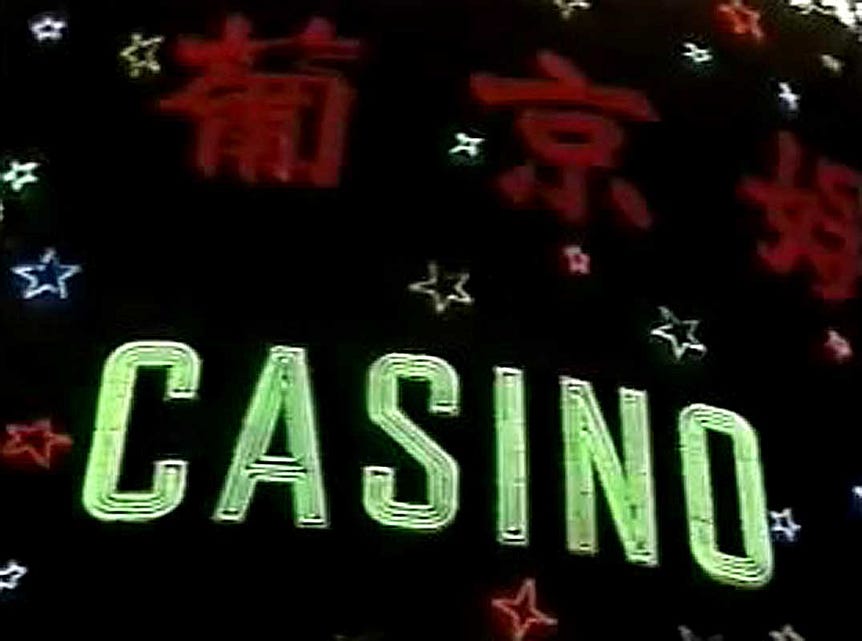
Expensive gifts, luxury yachts, trips to the casinos in Macau, but that wasn’t all.
Garry Clement is now the Chief of Police in the small town of Kohlberg Ontario. But in the early 1990s he was an RCMP officer stationed at the High Commission in Hong Kong.

Clement found more signs of corruption. Money handed out to Canadian embassy staff to bet on the horses at Hong Kong’s luxurious Happy Valley racetrack. But that was only the first part of the deal. Clement remembers a warning that he received from a wealthy and connected businessman.

Garry Clement: “The one thing that he told me very early on in my time there is nobody in the Chinese culture does anything for nothing, and I never forgot that. I think that’s where you have to look at. Why was the Canadian mission being targeted? Why was the Canadian mission being invited out to all these events? Well we all know, Canadian passports.”
二人稱親見電腦資料被刪改;外交部派電腦專家David Balser來港調查,證實確有安全漏洞,但當局未跟進。
And it gets worse. At the time all these applications were being processed electronically, McAdam and Clement had come up with a special code to identify known criminals who had applied, code “H.”

Brian McAdam couldn’t believe his eyes one day when sitting at his computer, he opened his secret file of known triad members to discover someone had broken into the systems.
Brian McAdam: “Suddenly was within just a few seconds, the name and the details appearing, the name just started dropping off like the letters were sliding off the rulers, just falling down and the screen is blank. I thought I was doing something wrong. So I thought I’ll just grab my file that doesn’t have this code to see what happened. The other files came out no problem, they didn’t disappear. Just my files which were quoted ‘H.’”

Don Clark: “And these files were essential because this was the basis of the intelligence that you had collected on some very bad guys who wanted into Canada. And with that information deleted from the computer, all of a sudden they would look clean and just be left from the system.”
Brian McAdam: “Yeah.”
The evidence was mounting that something was going on. The RCMP launched an investigation and the Department of Foreign Affairs sent over a computer expert.
The top-secret report prepared by David Balser in 1992 confirmed the worst suspicions. They were alarming breaches of Canada’s immigration policies. But for reasons unexplained, the RCMP investigation ignored the Balser report.

Garry Clement: “Anybody that saw that report should have taken very definitive action. Why it was not taken? I don’t know.”

Brian McAdam認為情況嚴重,一再促請當局跟進,結果遭同僚排擠。
The Mounties also paid little attention to evidence of bribery, forgery of visas, and profiteering at the Canadian High Commission.
Don Clark: “How compromised was Canada at that point?”
Brian McAdam: “It was extremely vulnerable, and the most disturbing thing is that no one took this problem seriously at the time.”


No one except for Brian McAdam who was pushing for a full inquiry into the allegations of corruption and fraud, allegations that pointed directly to the staff at the High Commission. But suddenly the career civil servant who had received glowing performance reviews found himself shunned by his colleagues.
Brian McAdam: “Nobody wanted to talk to me and I became very ostracized within the office.”
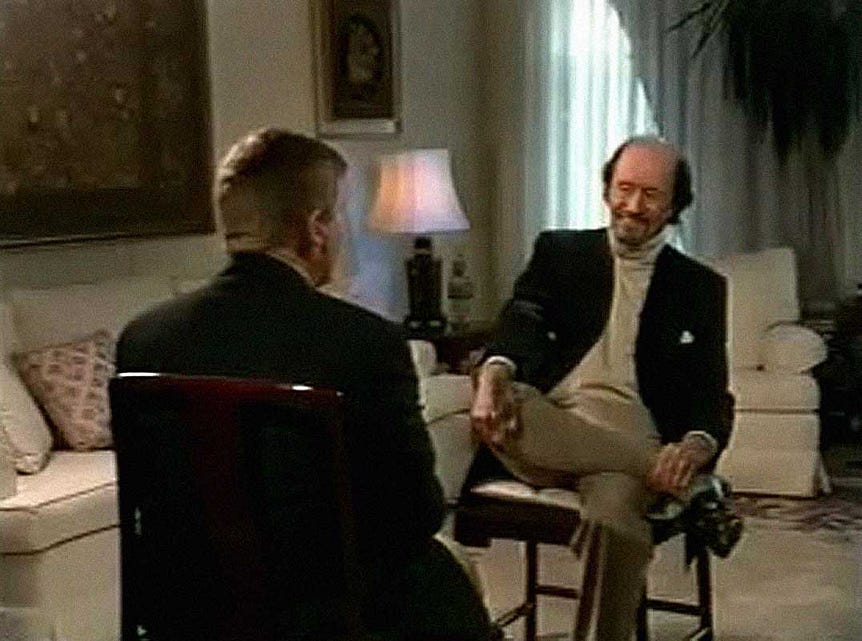
Don Clark: “No wonder they didn’t want to talk to you, you were the guy turning over all the stones. You were trouble.”
Despite all the efforts to shut McAdam down, the scandal would not go away, too many people knew.
有熟悉黑社會運作人士向W5透露犯罪組織如何收買使館人員。

Don Clark: The corruption at the High Commission in Hong Kong was known far and wide by certain criminal organizations, and that brings us here to London. We found a man who knows firsthand the operations of Chinese organized crime, otherwise known as the Triads. He agreed to come out of the shadows to fly in from an undisclosed location and meet us here in London, to reveal for the first time what he knows about the connections between the Triads and the scandal at the Canadian High Commission.
Some members of the international intelligence community have long supported Brian McAdam and they persuaded this man to talk to W5. But he had conditions, we had to protect his identity. No name, no pictures of his face, and his voice had to be altered. He is connected to the Triads through family and business, and talking to us about them could be fatal. But he says he knows exactly how they operated with the Canadians.

The source: “First of all, some Triad remembers, they don’t present as the Triad. They are very famous businessmen, even legislators, solicitors, accountants and they hold senior position in the Triads. They would invite whoever newly arrive from Canada to work in the High Commission of Canada in Hong Kong, to go the race course in their box, do some racing, talking and then going party. or going on a big big yacht. And some money change hands, some handshake, and problem solved you know. Can you afford to buy a gold Rolex? So they give you a gold Rolex, fancy car, then when you get hooked on, then they’ll ask you to do a favor. Beside, who knows at those days? Who knows? Everybody doing I think. I think it took more than one person in the High Commission of Canada to get the job done, not just one single person. It must be a big big scandal behind it all.”


Don Clark: “With the type of corruption that was evident at the High Commission at that time, is it possible that a number of very serious criminals, Triad members would get through the system and get to Canada?”
The source: “They’re all living there now! Big-time businessmen, popular in Chinatown business. If you try to tell me nobody take bribery in that time, nobody in Hong Kong would believe it. Especially those who couldn’t make it.”
Don Clark: “How much would it cost?”
The source: “Nobody give me the price. But I would figure out somewhere of a half million Hong Kong dollars. Would you pay a half million to buy the whole family an insurance? Or would you like to go to Africa or some tiny island in the Pacific, or would you like to go to the Maple Leaf? I would choose the Maple Leaf.”
How many criminals bought their way in? The half-hearted RCMP investigation turned a blind eye to that. But this scandal was about to take a new twist.

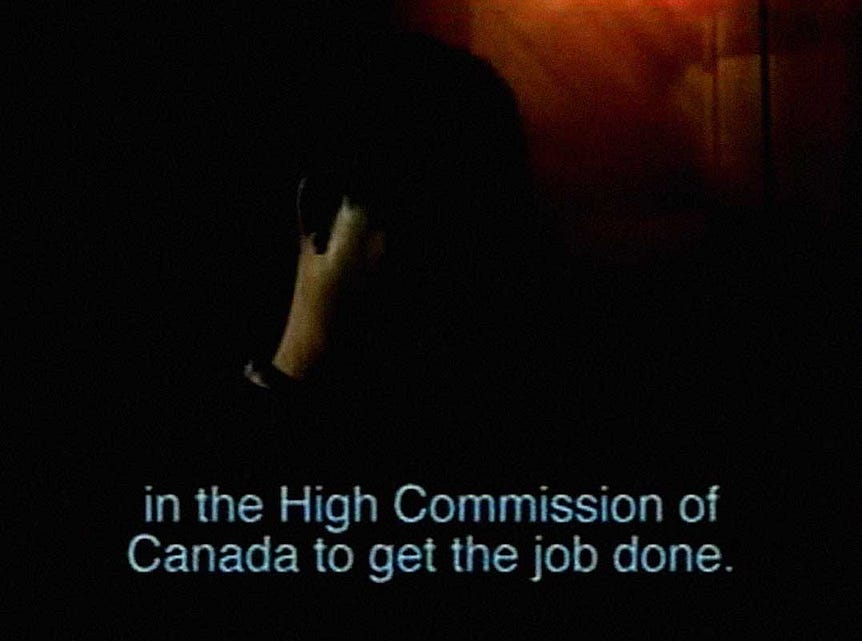
政壇對醜聞幾乎毫無反應,只有自由黨國會議員David Kilgour願意會見Brian McAdam,並致函總理要求跟進,但亦全無下文。
Allegations of passports for sale at Canada’s High Commission in Hong Kong, staff accepting gifts and money, socializing with known criminals all uncovered by Immigration Control Officer Brian McAdam.
Don Clark: Now you might have thought that all of this would have set off alarm bells here on Parliament Hill, the very thought that employees of the government of Canada were involved in massive corruption that could have allowed dangerous criminals into the country. But surprisingly nobody here not one ministry not one agency seem to be very interested in getting to the bottom of this, except for one Liberal MP who felt that this was perhaps the most serious scandal that he had encountered in his political life.
David Kilgour met with Brian McAdam and he was convinced that something was seriously wrong in Hong Kong. In his 1995 letter to Prime Minister Jean Chrétien he tried to warn him about the highly irresponsible and/or illegal activities and asked for a full public inquiry.”
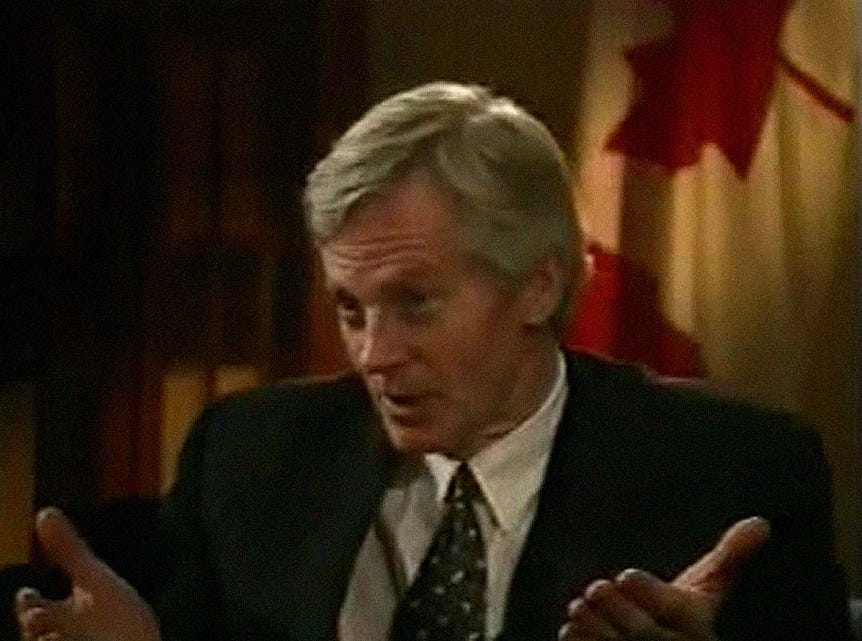
David Kilgour: “I thought that what McAdam was saying is a 30 year veteran of Immigration Canada who had done like two postings in Hong Kong that what he was saying was serious enough that I thought I should refer it first to the immigration minister of the day, and then the Prime Minister.”
Don Clark: “The inquiry didn’t happen?”
David Kilgour: “No it didn’t.”
Prime Minister Jean Chrétien never even acknowledged Kilgour’s letter. And it was into that climate of “see no evil, hear no evil” that our second whistleblower stumbled.
1993年,高級警長Jim Puchniak曾申請到港查案,但被警督Gary Lagamodiere勸止,說會得罪駐港高級代表John Higginbotham云云。

In 1993, Staff Sergeant Jim Puchniak wanted to go to Hong Kong and conduct a proper investigation, but the RCMP liaison officer at the mission inspector Gary Lagamodiere wrote a memo back to Ottawa advising against it, saying it would upset the High Commissioner John Higginbotham.
Don Clark: “Lagamodiere said that if your investigators came to Hong Kong it would be viewed as a witch-hunt, and he said I can guarantee you Canadian High Commissioner will be screaming at the highest political levels. What did you make of that?”

Jim Puchniak: “My instinct then and still is that if there was nothing to hide, you would welcome a police investigation. So obviously there was something that was going on.”
Don Clark: “Did you feel at any point that there was political interference at the highest levels on this investigation?”

Jim Puchniak: “It just seemed throughout this investigation and anything to do with the Hong Kong file that there was always some something blocking it, some reason why we couldn’t go.”
1996年,皇家騎警警目Robert Reid被派接手跟進McAdam之案件,據悉是當局調來的第四位,也是資歷最淺警員。Reid與McAdam多次會面,逐漸掌握案情與相關基本知識,越來越相信確有其事,認為事態嚴重,接連向上級報告,遭上司與外交部重重阻撓。

Robert Reid: “It’s kind of like walking through a forest and all of a sudden you find yourself in quicksand.”
Corporal Reid grew up in Regina Saskatchewan, the home of the RCMP. Like any dedicated cop, Read thought that his job was to dig into the allegations and get to the truth. One of the first things he came across was the top-secret Balser Report which laid bare the security breaches. Armed with that he went to his boss.
Robert Reid: “He said this is water under the bridge, why go over this again? And I was very shocked by that. I said this is not water under the bridge, this is evidence of of a major fault.”
The more he dug into the affair, the more resistance he felt. The departments of Foreign Affairs and Immigration blocked their staff from speaking with Reid, something that Reid’s RCMP boss agreed to.
Robert Reid: “I arrived at the opinion that in fact the progress I was making was not pleasing to my superiors.”
Robert Reid相信,加國聯邦政府入境部門與外交部門,以至皇家騎警都有份阻撓調查。在1999年,他選擇向公眾披露所知,結果以瀆職罪名被革職。



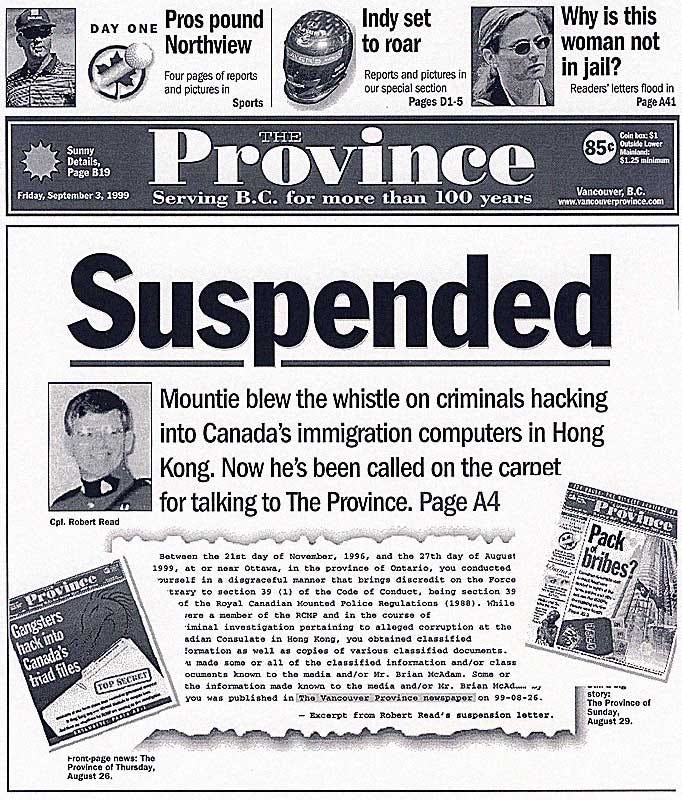
Reid就此向公民檢討委員會上訴,委員會為他與McAdam二人平反,但其意見對皇家騎警隊沒約束力。委員會另又批評,雖有多方可疑跡象,但皇家騎警隊選擇完全無視,禁止調查。
Don Clark: “Did you feel that maybe you were getting a little bit too close to a very uncomfortable truth for the Canadian government?”
Robert Reid: “Well I felt that I had discovered a cover-up. At that time I believed that it was Department of Immigration and the Department of Foreign Affairs who were involved in this.”

Don Clark: “Let’s just be clear about this. You’re saying that there was a cover-up conducted by the federal government? By a couple of departments in the federal government? You’re also saying that there was obstruction of justice by the RCMP? Those pretty serious charges.”
Robert Reid: “Yes, yeah yeah yeah.”

In 1999 Corporal Reid did the unthinkable for a Police Officer. He broke his oath of secrecy and went public about the scandal in Hong Kong. The RCMP reacted swiftly. The force charged the 24 year veteran with professional misconduct found him guilty and fired him.
And that might have been the end of it, but Reid appealed his dismissal to the RCMP s civilian review committee. And out of the thousands of pages of documents and testimony from his disciplinary hearing, came this decision in September 2003: vindication for Reid and McAdam and scathing criticism of the RCMP.
The review committee found that the RCMP was walking on eggshells whenever it conducted an investigation into activities at the Canadian mission abroad and this: “…What is at issue was a deliberate choice made by the RCMP not to pursue an investigation into possible criminal wrongdoing even though numerous examples had been drawn to its attention.” It warned that the RCMP must “not allow itself to be co-opted by government agencies.”


退休港警相信,加國當局有意隱瞞真相。加國自由黨議員David Kilgour認為警隊人手充足,只要肯著手查,即使事隔10年亦未為晚也。皇家騎警退休警司Garry Clement更直指警隊未有履行保護加人的職責。
Retired RCMP Superintendent Garry Clement believes that the force failed in its duty to protect the citizens of Canada.
Garry Clement: “We dropped the ball. I mean I don’t think we should try and defend it. The bottom line is we drop the ball in this investigation.”
The review committee found that while Corporal Reid made mistakes, he was justified in raising a matter of legitimate public concern and recommended that the RCMP reinstate him. But the question of the cover-up remains active.
Liberal MP David Kilgour: “Nobody’s above the law ultimately. It was the RCMP responsibilities to say if anybody was telling him don’t rock any boats or don’t do this, don’t do that. To say sorry our mandate is to go and see if there’s been a criminal offence committed.”
Don Clark: “Do you think that we will ever get to the bottom of who was truly behind the cover-up in this case?”
David Kilgour: “I don’t know. I would think we had a team of investigators assigned to go and find out. I don’t think I’d be very hard to find out what happened even now ten years later.”

Former Hong Kong Police Inspectors Sandy Boucher: “They should have been dealt with and it wasn’t. The way it ended up this story has ended up is staggering.”
Don Clark: “Do you believe there was a Canadian cover-up on this?”
Sandy Boucher: “Sure. If you look at you know what’s happened with the overall picture of the Hong Kong mission, I’ve no doubt as a cover-up.”
But by who, and why? There are a number of places to look. Exposing the corruption of the High Commission would have embarrassed the government. It could have ruined the careers of some bureaucrats, and it would have revealed a woefully inadequate RCMP investigation. As it turned out, no one was embarrassed and no one lost their jobs except for the two whistleblowers, Robert Reid and Brian McAdam, who became the target of a vicious personal campaign.
到後來,只見Robert Reid與Brian McAdam兩名吹哨者前途盡毀,沒有高層或官員要問責,潛逃加國香港重犯仍逍遙法外。
Garry Clement: “I don’t think in 30 years of being involved in police I’ve ever seen a character assassination that took place by an organisation, first from somebody that really did his job, he was very well-meaning, he represented I think what the public expects of a civil servant.”
McAdam eventually suffered a nervous breakdown and had to take early retirement.
Don Clark: “Do you ever regret having spoken out? Life would have been a whole lot easier, it isn’t?”
Brian McAdam: “No. First day I do not regret it. My ethics are such that I had to do what I did. But it’s not easy being a whistleblower.”

The Mounties Creed: they always get their man. In this case the only man they got was one of their own, a lowly Corporal. The findings of the review committee are not binding, and the RCMP has refused to reinstate Robert Reid. He now spends his days volunteering at an Ottawa community center. His policing career in ruins.
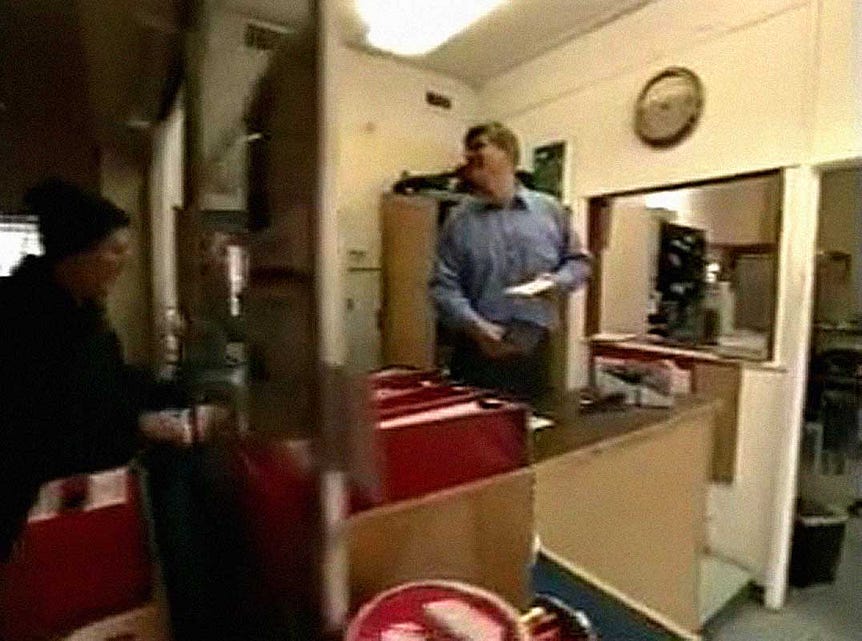
And remember the ice queen? Just months after she emigrated to Canada, she disappeared. Today, 14 years later still on Interpol’s list of most-wanted fugitives, last known address, Canada.
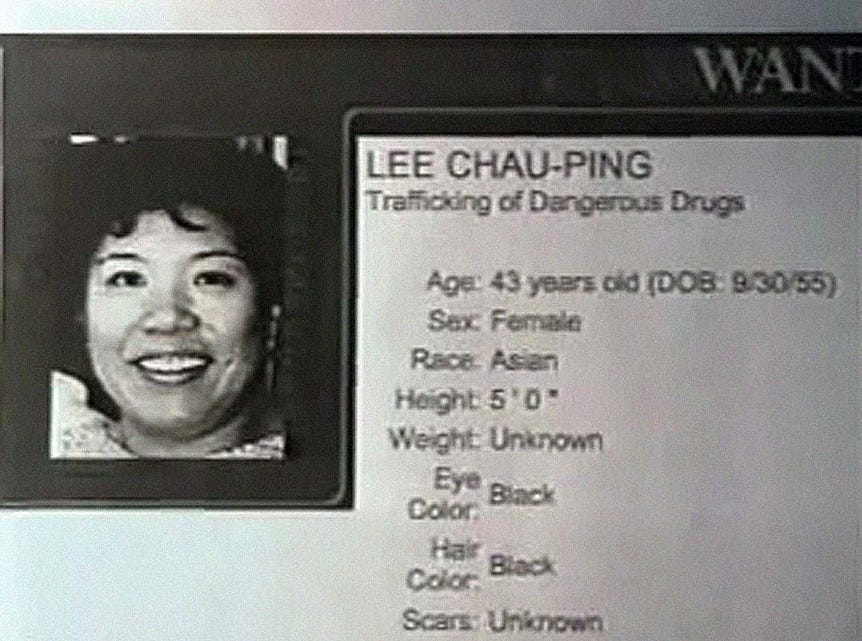

2. 文獻一瞥
當年僅餘檔案資料,是網上流傳加國情報部門撰寫的調查報告,名為Chinese Intelligence Services and Triads Financial Links in Canada(俗稱Sidewinder《響尾蛇報告》)。
1996年5月,加拿大安全情報局(CSIS)亞太區主管Michel Juneau-Katsuya發起與皇家騎警聯手進行大型調查行動,透過Brian McAdam的資料挖掘更大圖畫,並進行個案分析,初步報告一年後完成,隨即被高層銷毀。
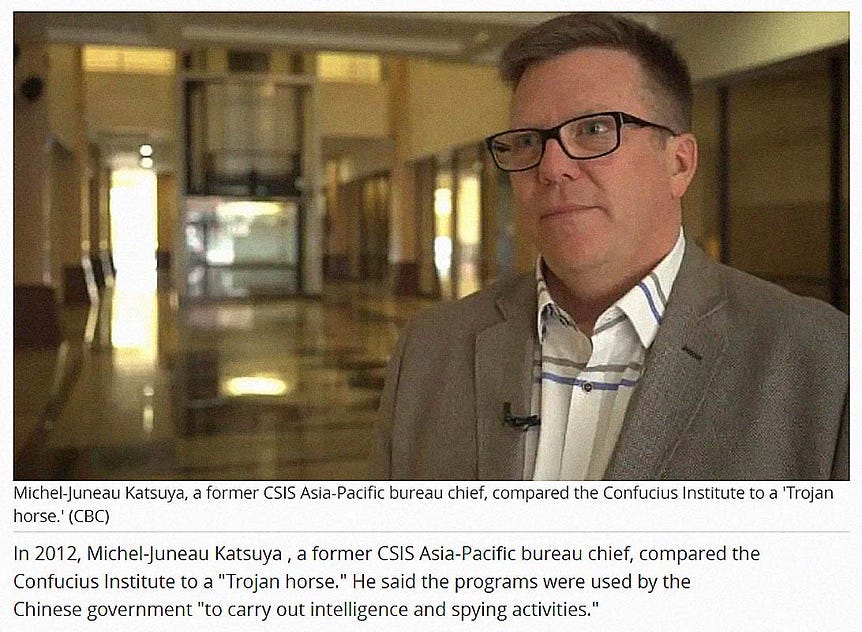
退休警官Leo Knight網站Prime Time Crime載有報稱當年報告副本,該文件暗示,不少香港富豪挾巨資到加國開公司做生意,又收購當地企業,取得加國護照,同時充當白手套引入間諜與黑社會。
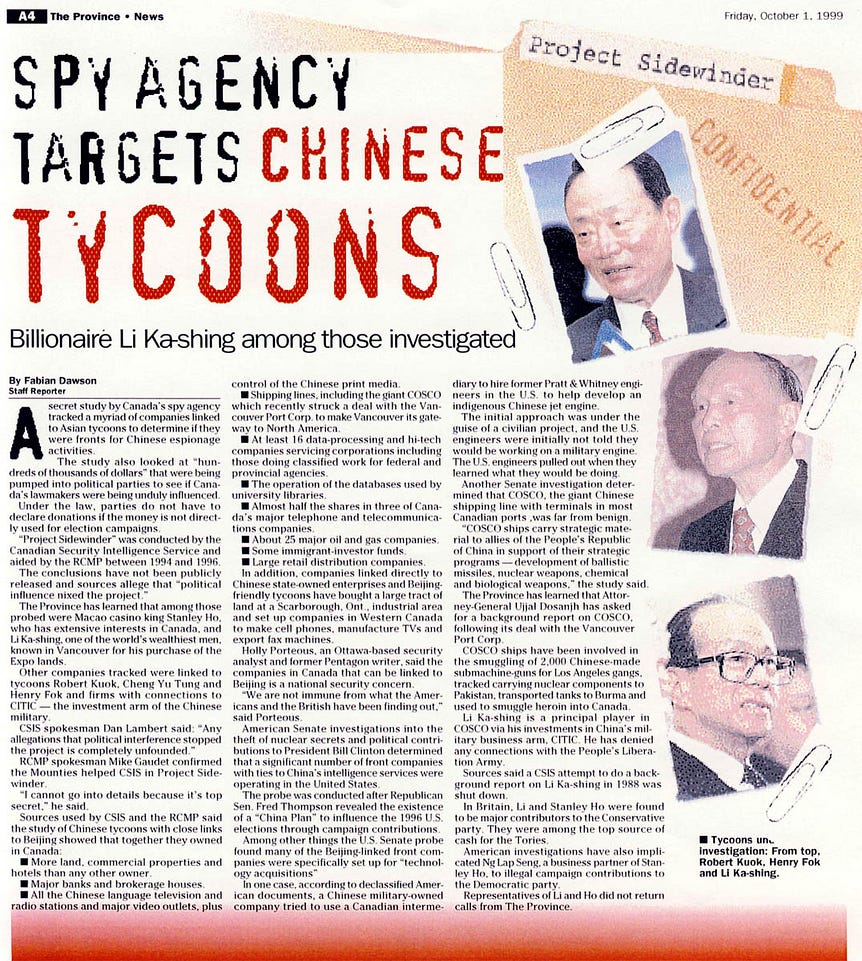
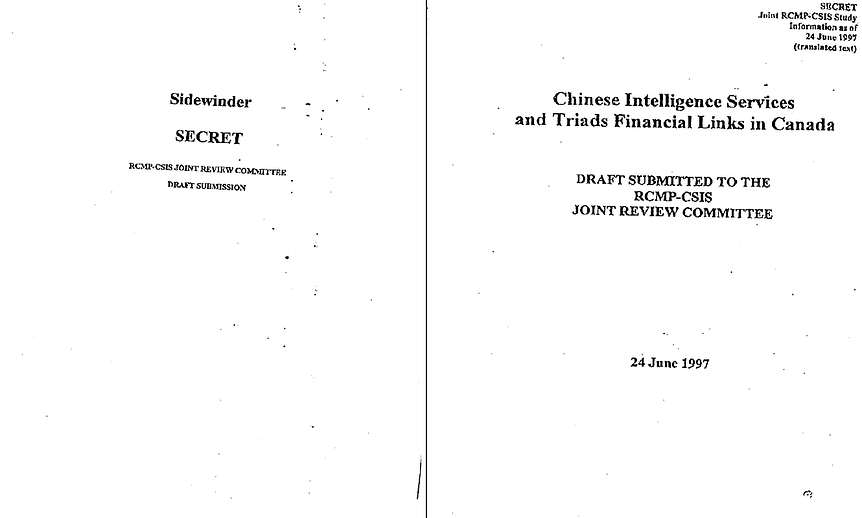
報告摘要:
Since the mid-1980s, a substantial immigration flow from Hong Kong has taken place and Canadian authorities were first alerted when a significant presence of Chinese organized crime elements among this group was detected. Many came through the “entrepreneur and “investor” immigration program and some of these criminals even have succeeded to obtain their Canadian citizenship…Hand in hand with this situation, the ChIS [Chinese Intelligence Service] make very active use of their access to Canadian industries through exchanges of specialists and students, and also set up shell companies to pursue their acquisition of economic and technological intelligence. Cooperation between the Hong Kong tycoons, the triads and the Beijing leadership adds a new dimension to the well known “mass line collection” strategy followed by the ChIS [Chinese Intelligence Service]. This situation substantially raises the level of the potential threat, revealing the effectiveness of Chinese efforts to obtain Canadian technology and their capability to interfere in the management of the country…
By using these alliances, the Chinese government is trying to gain influence on Canadian politics by maximizing their presence over some of the country’s economic levers. To that end, they proceed initially to buy and/or legally set up a company in Canada that, once under their control, buys other companies and so on. An effective domino effect ensues that acts like a well-spun web or network at strategic points. It is estimated that over 200 Canadian companies have passed into Chinese influence or ownership since the early 1980s through the triads, tycoons or China national companies. These businesses are found in various sectors of the economy, ranging from multinationals to banking, high technology and real estate… The triads’ companies are also used to pursue their criminal activities, such as money-laundering and heroin trafficking, as well as assistance to the ChIS.
Being Canadian these businesses are also eligible to receive government subsidies for research or classified contracts from Federal Departments. The risk is that after the research is done, there results can be transferred to China. Other form of risk is with the access gain through classified contract. As an example, a Canadian company under Chinese influence was in contention for a contract to set up and run a classified communications system linking the main agencies of the Canadian intelligence community. A company in Toronto specializing in video surveillance was originally Canadian, but was bought by a Chinese multinational. It is impossible at present to say how many or which Canadian companies are in the same situation. These examples, however, raise questions about the integrity of some companies that have already installed security systems for various Canadian government institutions or Canadian research industries…The triads, the tycoons and the ChIS have learned the quick way to gain influence is to provide finance to the main political parties. Most of the companies identified in this research have contributed, sometimes several tens of thousands of dollars, to the two traditional political parties, that is, the Liberal and the Progressive-Conservative Parties…In many ways, China remains one of the greatest ongoing threats to Canada’s national security and Canadian industry.
報告引述西方情報指,九七前夕,多國入境部門都疑遭間諜與黑幫干預,看香港入境處處長梁銘彥與紅色商人徐展堂生意關係有跡可尋。
11. Even before Hong Kong’s official return to the Communists, it was established by several Western agencies that their national immigration systems had been affected by illegal ChIS and triad interference. Laurence Leung Ming-Yen, a former director of the Hong Kong immigration service, is still under investigation after he had to resign under the pressure of allegations of corruption and illegally disclosing confidential information about residents of the peninsula. The controversy surrounding Leung was fed by his business relationship with the flamboyant tycoon Tsul Tsin Tong, well known for his pro-Beijing views and a member of the notorious Chinese People’s Political Consultative Conference and Preparatory Committee. The murder of Leung’s young daughter in Vancouver in 1993 by a crossbow bolt has still not been solved. The Vancouver police suspect the crime was committed by triad members.
報告估計當時加國超過200間企業有紅色背景,涉及金融、地產以至高科技行業,連同好些學生與人才交流渠道都有各種安全威脅,包括毒品交易、洗黑錢、盜竊科技和其他間諜活動。報告提到,甚至加國情報部門所用錄影監控系統背後供應商也被中國財團所收購,難以估計多少資料可能外洩。
28. Semi-Tech Corporation. Semi-Tech Corporation is a Canadian multinational corporation based in Markham, Ontario. It was formed from various public companies listed on several shock exchanges, including Toronto, Montreal, New York, Tokyo, Osaka, Nagoya, Frankfurt and Hong Kong, and has revenues of over US $3.5 billion. This corporation, and its chairman James Ting in particular, have business ties with China. Stanley Ho is the principal shareholder through his company Shun Tak (Hong Kong) and sits on Semi-Tech’s board. (UC)
29. This company has concentrated in particular on information technology, establishing Semi-Tech Microcomputers Ltd., Semi-Tech MicroElectronics Corp., Semi-Tech Electronics, Singer and STM Systems Corp. The last of these was established by the merger of Data Crown (Canada) and Canada Systems Group, two companies that count various federal government departments among their clients and some of whose employees are regularly in contract with Chinese diplomatic representatives. Of particular note is the fact that Canada Systems Group had applied to undertake the development of COSICS, the Canadian On-line Secure Information and Communication System that was to link the Department of External Affairs, the RCMP, CSIS and National Defence. The project was suspended by the federal government due to the lack of financial resources...
涉嫌盜取核科技個案:
46. All areas of the Canadian economy are targeted, but high technology is the one most at risk. Several cases of theft of Canadian proprietary information and/or technology have been reported to and investigated by Canadian authorities. For example, Ontario Hydro believes it was the victim of theft of information in the nuclear technology field by an individual of Chinese origin. This individual sent unauthorized faxes (some containing hours worth of data) to a telephone number in China, associated with the State Science and Technology Commission. In another case, a Chinese employee of a major computer company based in Canada was accused of copying the company’s proprietary information onto diskette, for the purposes of selling the information to China. In a third instance, a Canadian company alleged that one of their former employees, who had previously served in the Chinese military, stole proprietary information regarding energy technology and sold it to the Chinese government.
報告以在加國開分公司中信集團管理層網絡為例,除了有親中港商任董事,還有中國高層子弟打理旗下軍火生意,為伊朗生產化學武器。
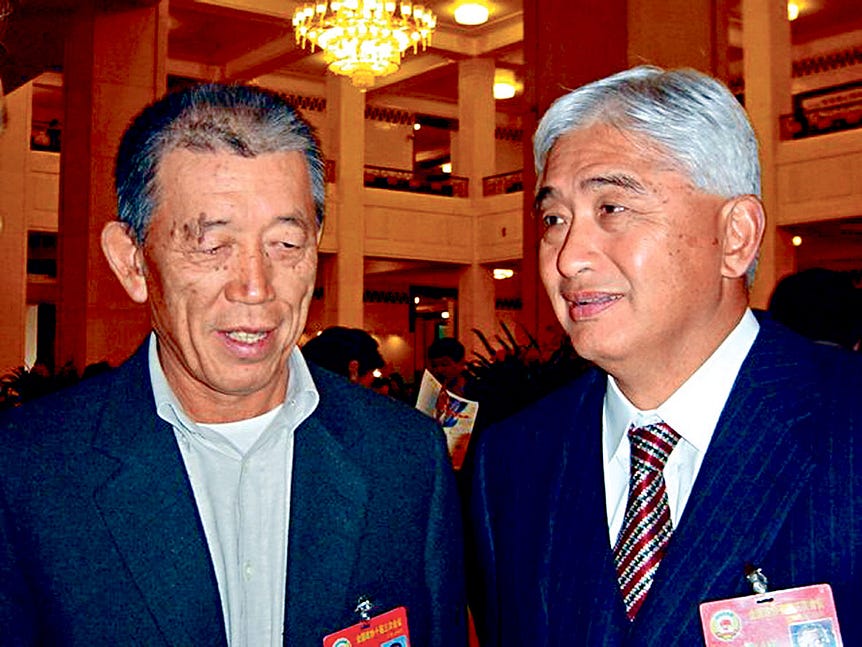
21. Norinco and Poly Technology (Poly Group)[保利集團]. Northern Industrial Corporation (Norinco)[中國北方工業有限公司] and Poly Technologies[保利科技有限公司](a subsidiary of Poly Group) are both owned by China and under the control of CITIC. They have subsidies around the world, including Canada (Montreal) and the United States. Poly Group was until recently head by Deng Xiaoping’s son-in-law, He Ping[少將賀彪之子賀平,鄧小平三女鄧榕夫婿], and is part of the entrepreneurial drive of the People’s Liberation Army (PLA). Several large quantities of arms manufactured by Norinco have been confiscated on Indian reserves, especially those of the Mohawks. In May 1996, US authorities what they described as the biggest arms seizure on American soil, confiscating 2,000 AK-47 assault rifles and other military weapons from a warehouse in California. The US-based Chinese representatives of Poly Technologies and Norinco were arrested in connection with this affair. Although the final destination of the arms has not been determined, the Amerindians “Warriors” and American militia trails are strongly suspected by US authorities.
22. In another incident, the Rex International Development company of Hong Kong, in which Norinco is the majority shareholder, is currently under investigation possibly subject to prosecution for exporting components for the manufacturing of chemical weapons to Iran. Rex was established in 1982 as a joint venture with Norinco by Tsui Tsin-Tong, a financial partner of Li Ka-Shing. Tsui filed an application to emigrate to Canada in 1985 which has been renewed several times. His case is still not settled because he has never satisfied the Canadian authorities by providing adequate explanations of his contacts with the PLA and the ChIS. Silver City Development Ltd., which holds shares in Rex, has been used for several years by the ChIS and the Chinese leadership as an investment front and cover. (S)
23. Through the power of its multinationals industries and the billions of dollars they generate, China has been able to establish itself in the Western economy. This gave to the country an enormous advantage in the pursuit of gaining influence. In return through these subsidies and influences, they are able to open channels to facilitate access to Western power and traffic of illegal weapons and technology.
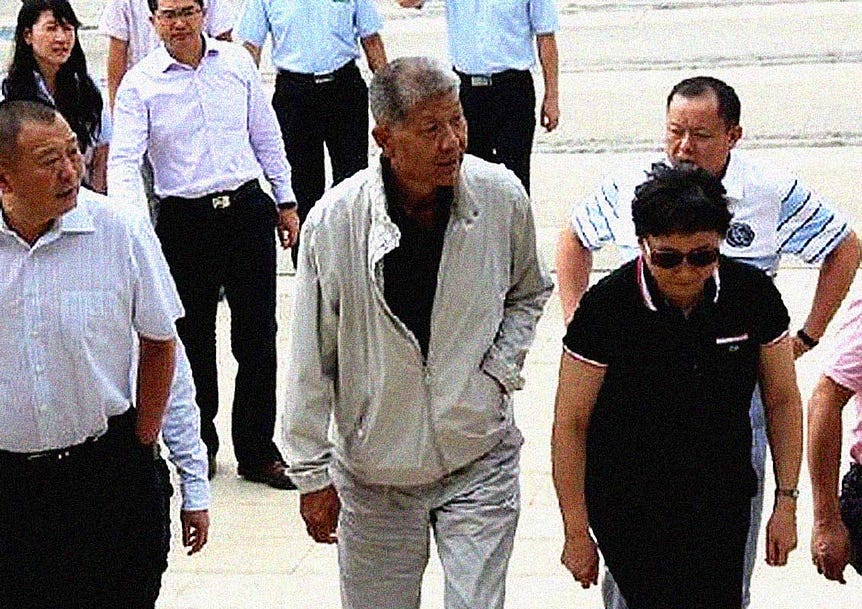

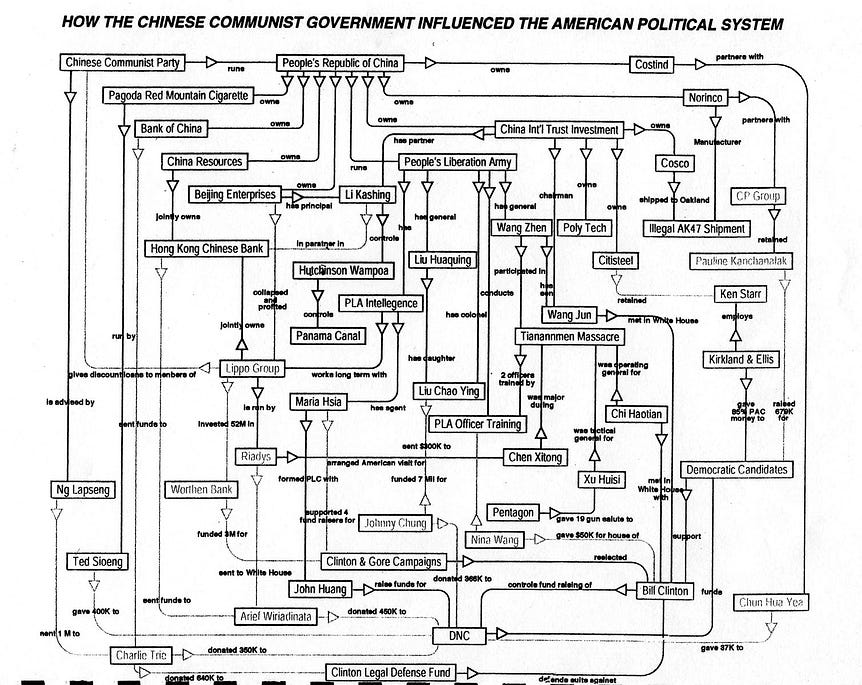
最後,這些資本透過經濟擴張和以相當金額資助主要政黨,直接影響加國社會生態。報告建議,當局應成立專案小組擴展調查及開展地區行動,並與美國聯邦調查局合作。建議全部不獲接納。
3. 後續影響
加國眾議院後來就保護吹哨者進行立法,2005年2月3日,Brian McAdam與Robert Reid以受害人身份於委員會作證,間接有份促成Public Servants Disclosure Protection Act誕生。


Brian McAdam與Robert Reid被Ryerson University的Centre for Free Expression列為Prominent Canadian Whistleblowers。

近年坊間回看,有認為昔日報告所言並不完全無中生有。


〈加情報局曾調查 中共利用黑社會滲透加拿大〉希望之聲(2016年11月8日):
澳門的賭場是黑幫洗錢的重要渠道,中國開始打擊黑幫後,2013年至2015年間,賭業收入下降了40%。湊巧的是,被「響尾蛇」調查報告認為金融法律存在漏洞的溫哥華及多倫多房市即時升溫。卑詩省房市2012年的市值跌了20%,2013年升了12%,之後一直沒降過…
加拿大主流媒體披露了很多中國人如何把資金轉入卑詩省,並投入房市的故事。其中包括通過利用多名親友每人可匯出5萬美元的政府政策,把錢分別匯到加拿大,然後合在一起用作買房的首付款;有人通過地下錢莊把錢轉出中國,一個典型的例子,是在中國借人民幣給加拿大商人,然後在卑詩省拿加幣…
面對行業管理的各種漏洞,卑詩省政府決定取消地產行業的自我監管權,並於今年8月開始對在溫哥華地區買房的外國買家增稅15%…聯邦政府…宣布新的報稅政策,原來不需上報的自住物業交易,一律必須上報…
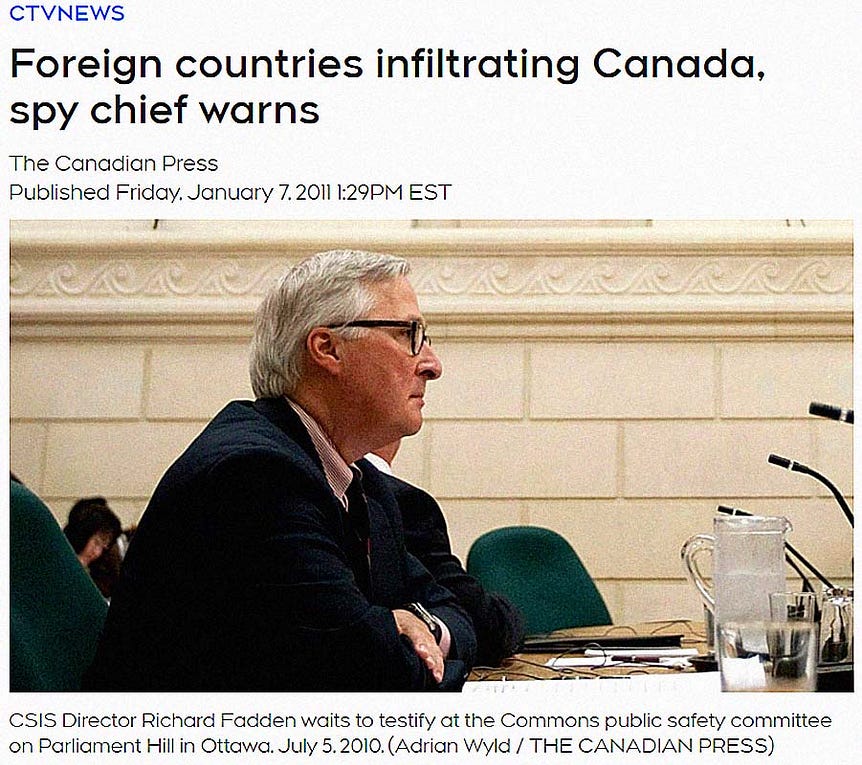
如果20年前「響尾蛇」調查行動確有那些發現的話,看起來符合了目前房市出現的情況…不幸的是,文件在曝光前,行動被突然叫停,所有文件被勒令銷毀,還有些被遺失…安全情報評審委員會對此調查後認定,報告存在很多問題… 近20年過去了,沒看到有關當局對「響尾蛇」行動及相關發現有任何解釋。不過,加拿大情報局局長法登(Richard Fadden)2010年在一次內部講話中,提到中共對加拿大的滲透情況,不巧被媒體曝光了。法登說,加拿大有2名省級廳長受到中共政府滲透。不過,在輿論要求法登公布相關細節時,法登並沒有合作。
2016年,渥太華報章專訪Brian McAdam,憶述當年揭露問題遭死亡恐嚇和上司同事排擠,導致嚴重抑鬱。McAdam丟掉工作,經過多年努力,生活才重回正軌。

The former diplomat says his whistleblowing cost him his 30-year career, triggering a deep depression that lasted more than two decades. Most of his former colleagues shun him. He says he’s endured surveillance and death threats so alarming that he once spent $10,000 to wrap his windows in bulletproof film.
As McAdam tells it, his troubles began at a Hong Kong racetrack in 1989, when someone handed him and his wife red envelopes stuffed with cash — about $300 Cdn. He refused the apparent bribe but says he soon learned that many other staff at the Canadian high commission routinely accepted the money.“I immediately became hated with a passion,” he says. “They were all fearful that I was going to do something that would threaten their jobs.”
McAdam alleges their animosity only grew after he discovered the immigration computer system at the high commission had been compromised and known members of Chinese Triad crime organization were obtaining visas. He was labelled an anti-Chinese racist and rumours were spread that he was issuing illegal visas — the very thing he says he was trying to prevent.
Some of his confidential reports, warning that Triad members “infest every immigration category,” were leaked to the Globe and Mail and newspapers in Hong Kong, McAdam says. “That’s when I started to get these intense death threats.”The threats from Triad crime figures continued for years, even after he was recalled to Ottawa in 1993, ostensibly to take up a new job that never materialized…
The severe clinical depression came on so quickly he could actually feel his brain chemistry changing, he says. He went on medical sick leave, then retired in 1995. The depression hit hardest in the early years. “He didn’t drive a car for two years, he wasn’t able to think very well, and he was very over-drugged by medication,” his wife, Marie, recalls. “It was very tough.”
…The journey to recovery gained momentum three or four years ago, when he asked his doctor to take him off the anti-depressant drug Wellbutrin…Fellow whistleblower Dr. Nancy Olivieri put him in touch with a Toronto psychiatrist who helped wean him off the drugs over a 2 1/2-year period…
Was it worth it? Would he do it again?“Unfortunately, I probably would,” he says. But he’d be much smarter…“I was writing what I found out, believing that police forces and intelligence agencies would react accordingly and do their jobs. That was the big mistake I made.”
至於警目Robert Reid,他被革職後,曾到聯邦法院上訴,2005年被法官譴責「對政府缺乏忠誠」。Reid再向最高法院上訴,2007年5月法院宣佈拒絕審理其案件。
2019年,資深記者Jonathan Manthorpe在著作Claws of the Panda: Beijing’s Campaign of Influence and Intimidation in Canada梳理歷史脈絡,提及當年,認為是錯失時機。

加拿大的政治人物對於中共侵入我國的程度一直抱持懷疑,就算有強烈的證據擺在他們眼前也一樣。原因之一似乎是,他們對加拿大的國安和情報工作長久以來缺乏敬意。這些機構過去的歷史確實也問題多多;後文將會提到,加拿大安全情報局(CSIS)是在1980年代和1990年代歷經重重困難才得以建立,其間又發生情報局提出一份報告,內容是關於中共對我國進行代號「響尾蛇行動」的滲透,結果卻遭到國會嚴詞批評的事件。不過,近年來國會和情報機構的關係似已趨向穩定。彼此之間的尊重日增…
因為害怕被貼上種族歧視的標籤,使得關於中共代理人在加拿大活動的討論非常受限。無可否認,我國歷史上曾有過種族歧視的法律和規定是針對將入籍的華裔移民和其他亞裔移民。對這段歷史所感到的愧疚,在公眾人物之間生出一種充滿戒心的態度…但這樣一來就將武器交給了中共影響力的代理人…把中共滲透加拿大一事看成種族主義,不但是錯誤,更是危險的。這並不是種族主義。這是某一特定政權在其歷史上的某一時期為了自身利益所編出來的故事。中共把海外華人看成一種可以運用並加以濫用的資產,不僅對一般加拿大人來說是威脅,對華裔加拿大人來說更是如此…
中共操作起來最得心應手的場域是在它熟悉的中華文化圈…他們在西方民主社會中最好運作的情形,就是找到可以迷惑和收買的人…加拿大為中共提供了源源不絕的好用的白痴[按:前蘇共用語],包括政黨與政府領袖、基層政治人物、天真又驕傲的學者、貪婪又好騙的商務人士,甚至某些目光短淺、歷練不夠的記者。他們當中的許多人為了替自己的貪念找藉口,便告訴自己,多與中共接觸,黨就會感受到加拿大價值的美好。一旦黨員們見識到自由民主政體帶來了自由與人權,他們就會迫不及待地推動中國走上改革之路…

— 歡迎分享,更多材料見內容導覽 —
搜尋本站資料,可用Google自訂引擎
考古陣地一覽
facebook.com/recall.hk
instagram.com/recall.hk
medium.com/recall-hk
mewe.com/join/recall-hk
odysee.com/@recall-hk
twitter.com/recallhk
mastodon.social/@recallhk
t.me/s/recallhk
#世代懺悔錄 #香港前途考古 #太平門系列 #過渡期 #移民潮 #加拿大 #李嘉誠 #何鴻燊 #霍英東 #李福兆 #徐展堂 #響尾蛇報告 #Sidewinder #冰后 #李秋萍 #吹哨者 #梁銘彥 #BrianMcAdam #SandyBoucher #GarryClement #RCMP #CSIS #DavidBalser #DavidKilgour #JeanChrétien #JimPuchniak #RobertReid #MichelJuneauKatsuya #GaryLagamodiere #JohnHigginbotham #CTV #W5 #VeronicaAlice #CITIC #PolyGroup #Norinco #RexInternationalDevelopment

No comments:
Post a Comment
Comments always welcome!